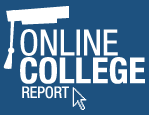Whether you’re going to college online or on campus, proper school accreditation is very important. In fact, it’s so important, that the act of choosing between the right and wrong type of college accreditation will play a huge role on how valid your degree will be, whether you’ll receive financial aid, how much you will make and if you’ll ever get that promotion you’ve been waiting for.
Must Read #1: Regional Accreditation and National Accreditation – delves into accreditation based on the institution, like a college or a university
Must Read #2: Specialized, Professional or Programmatic Accreditation – explores the nuances of accreditation from the standpoint of the program
Must Read #3: For-Profit Colleges vs. Not-for-Profit Colleges – explores the differences between the two models
What We Recommend: Quality colleges and universities that are regionally accredited and feature a strong program (we love programmatic accreditation whenever possible, but not all programs carry specialized accreditation). We also prefer not-for-profit colleges and universities over for-profits…
Whatever you do, make sure that the college or university is accredited and participates in the Federal Student Aid programs (that’s how most students get financial aid). The best way to find out if your school is accredited is by contacting a school representative or visiting the school’s website (usually located on the About Us page). Alternatively, you can run a Google search and you can also check out the US Department of Education page on college accreditation if you get stumped.
In relation to current accreditation standards being offered, if the college or university is not regionally accredited it’s just not a school I further consider. I also like when the school provides the name of the accrediting organization with a website link taking me to the accrediting organization’s website, so I can check the validity of their statement myself. Don’t take things at face value and look elsewhere to get answers if you’re not feeling 100% sure.
There are reputable schools out there now, like the Khan Academy, that offer non-credit courses in new, innovative ways. These schools are not “accepted” by today’s accreditation standards, but that may change in the future. I’ll keep you posted.
– Radek
Founder, OnlineCollegeReport.com
Warning #1: Improperly accredited or unaccredited colleges and universities can cost you more than you think:
- Money – you may not get the much needed financial aid.
- Time – degrees from improperly accredited or unaccredited schools don’t count. Think about it, would you want to repeat a 4-year degree program twice?
- Career – you may get demoted or even lose your job if an employer found out that your school’s or program’s accreditation was not real or improper.
- Reputation – this one goes without saying…
- More Money – Some students may have to repay loans for attending improperly accredited institutions.
Some people slither into the workforce with their illegitimate diplomas from even more illegitimate schools, but if you work or plan to work for a legitimate employer, where the Human Resources (HR) Department has a pulse, this kind of trickery won’t last long, or even better, won’t even be allowed in the first place.
Ultimately, it is your responsibility to make sure that the college or university you attend is properly accredited!
… and that brings me to our next food for thought
Warning #2: I love this one… While you research colleges and universities you’ll definitely come upon the clever wording in front of the word “accreditation” and “accredited” – Be mindful of words like:
- proper accreditation and properly accredited
- valid accreditation
- top accreditation or best accreditation
Also watch out for long winded, well crafted sentences and even long explanations of why the specific school’s accreditation is “valid,” “proper,” or “best.” Yes, there will be times when the school authentically has the “best accreditation,” but you are going to double and triple check that yourself… right?
by Radek Gadek



If you enjoyed this article, please share >>